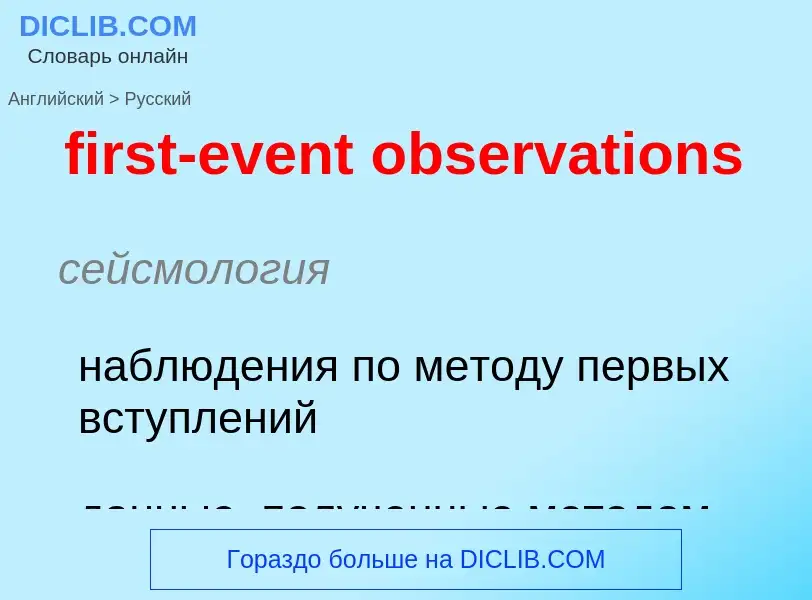Traduction et analyse de mots par intelligence artificielle ChatGPT
Sur cette page, vous pouvez obtenir une analyse détaillée d'un mot ou d'une phrase, réalisée à l'aide de la meilleure technologie d'intelligence artificielle à ce jour:
- comment le mot est utilisé
- fréquence d'utilisation
- il est utilisé plus souvent dans le discours oral ou écrit
- options de traduction de mots
- exemples d'utilisation (plusieurs phrases avec traduction)
- étymologie
first-event observations - traduction vers russe
сейсмология
наблюдения по методу первых вступлений
данные, полученные методом первых вступлений
['kwiktaim]
военное дело
строевой
походный шаг
строевой, походный шаг
Définition
Тонкая палочка с ременной петлей на конце, применяемая как хлыст при верховой езде.
Wikipédia
In probability theory, an event is a set of outcomes of an experiment (a subset of the sample space) to which a probability is assigned. A single outcome may be an element of many different events, and different events in an experiment are usually not equally likely, since they may include very different groups of outcomes. An event consisting of only a single outcome is called an elementary event or an atomic event; that is, it is a singleton set. An event is said to occur if contains the outcome of the experiment (or trial) (that is, if ). The probability (with respect to some probability measure) that an event occurs is the probability that contains the outcome of an experiment (that is, it is the probability that ). An event defines a complementary event, namely the complementary set (the event not occurring), and together these define a Bernoulli trial: did the event occur or not?
Typically, when the sample space is finite, any subset of the sample space is an event (that is, all elements of the power set of the sample space are defined as events). However, this approach does not work well in cases where the sample space is uncountably infinite. So, when defining a probability space it is possible, and often necessary, to exclude certain subsets of the sample space from being events (see Events in probability spaces, below).

![soccer ball]]. soccer ball]].](https://commons.wikimedia.org/wiki/Special:FilePath/Quick time event mockup.jpg?width=200)
![Shenmue]]''. Shenmue]]''.](https://commons.wikimedia.org/wiki/Special:FilePath/Yu Suzuki - Game Developers Conference 2011 - Day 3.jpg?width=200)
